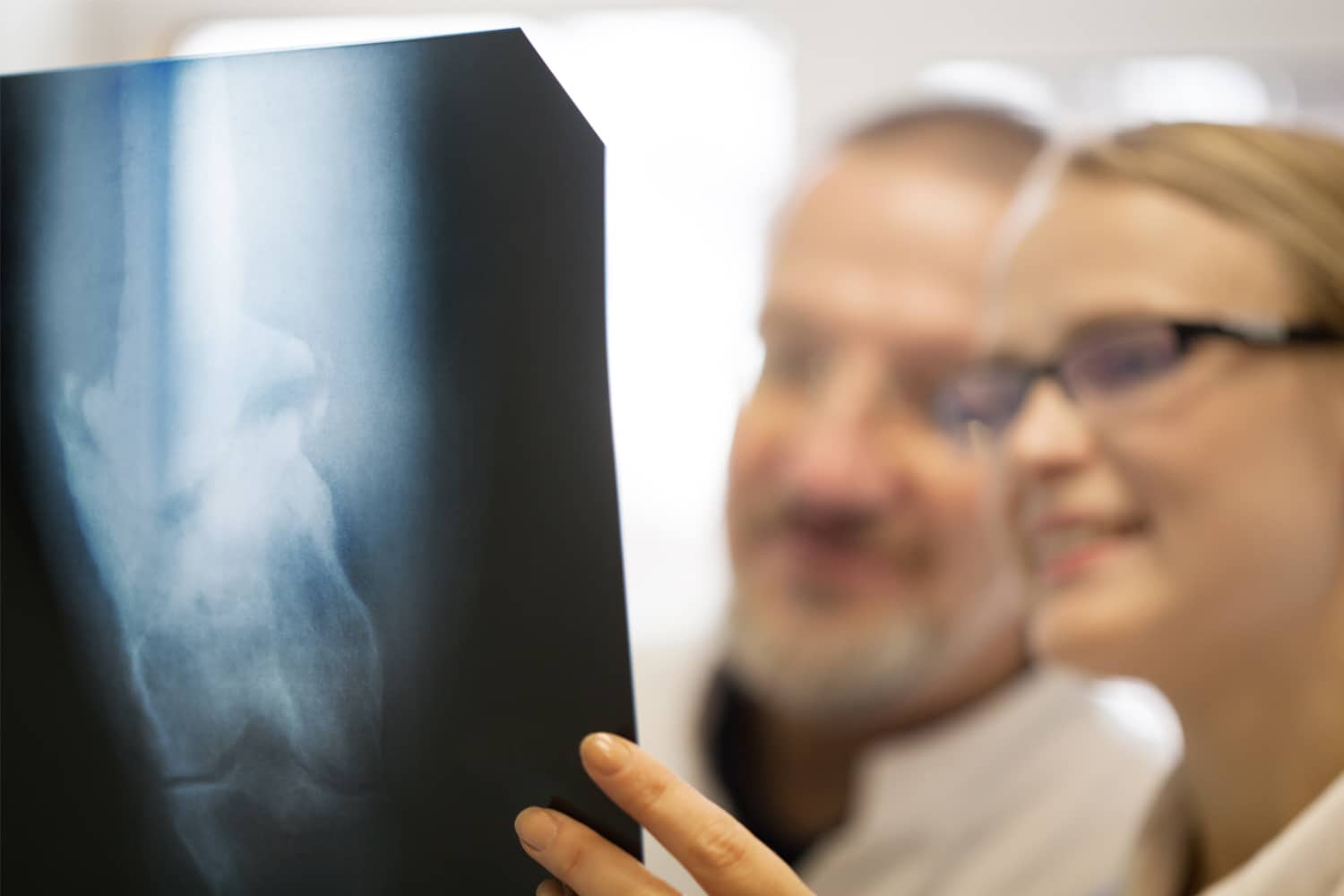
The Knee Care Press
Weekly
Support for unicompartmental knee replacement
There is growing, strong evidence that unicompartmental knee replacement (UKR) can have many advantages for patients over total knee arthroplasty (TKA).

The Knee Care Press
Weekly
Arthroscopic popliteal tenotomy can remove the persistent pain associated with popliteus tendon impingement.
One of the possible consequences of total knee arthroplasty (TKA) can be popliteus tendon impingement which, although rare, results in significant pain for some patients.

The Knee Care Press
Weekly
Promising early results for medial congruent tibial components in anatomic TKA
Similar migration and patient-reported outcome measures (PROMs) for medial congruent (MC) and cruciate‑retaining (CR) tibial components.

The Knee Care Press
Weekly
A detailed registry analysis of Primary Total Knee Arthroplasty revised for instability
Instability after total knee arthroplasty is a common but poorly understood complication and very often leads to revision surgery to help correct the instability that may have built up over time, following the initial procedure.

The Knee Care Press
Weekly
Study suggests knee replacement surgery with MC-Bearing design could improve patient outcomes and satisfaction
This 2022 study examined the tibiofemoral kinematics and patient outcomes of knee replacement surgery using two different implants – the medial congruent (MC) bearing and the cruciate retaining (CR) bearing.

The Knee Care Press
Weekly
Should knee surgeons consider listening to AC/DC in the OR?
Novice surgeons who listen to AC/DC may be faster while maintaining accuracy during laparoscopic surgery.

The Knee Care Press
Weekly
Large rise in patients self-paying for procedures since the beginning of the Covid-19 pandemic
New figures reveal a triple-digit percentage point rise in patients paying out of their own pockets, when comparing July to September 2019 figures against the same period in 2021.

The Knee Care Press
Weekly
Study confirms the high accuracy of a new robotically assisted technique for total knee arthroplasty.
Conventional total knee arthroplasty (TKA) replacement studies have shown that pain, instability and limitation of the range of motion are the most commonly reported symptoms among unsatisfied patients. The major cause of unsuccessful TKA are inadequate alignment and errors in balancing.

The Knee Care Press
Weekly
The effect of femoral posterior condyle offset on knee joint function
While often successful in reducing pain, improving knee function and therefore quality of life, TKR does not necessarily restore full range of motion of the pre-operative joint.

The Knee Care Press
Weekly
Fixed-bearing medial UKA is shown not to compromise outcomes for those with PF arthritis and ACL deficiency
Unicompartmental Knee Arthroplasty (UKA) is a less invasive alternative to total knee arthroplasty (TKA) for the treatment of end-stage arthritis1-4.

The Knee Care Press
Weekly
A study to evaluate efficacy, patient satisfaction and safety of same-day PKR surgery in a public hospital setting
This study was undertaken to evaluate the safety of a same-day surgery protocol using the partial knee replacement (PKR).
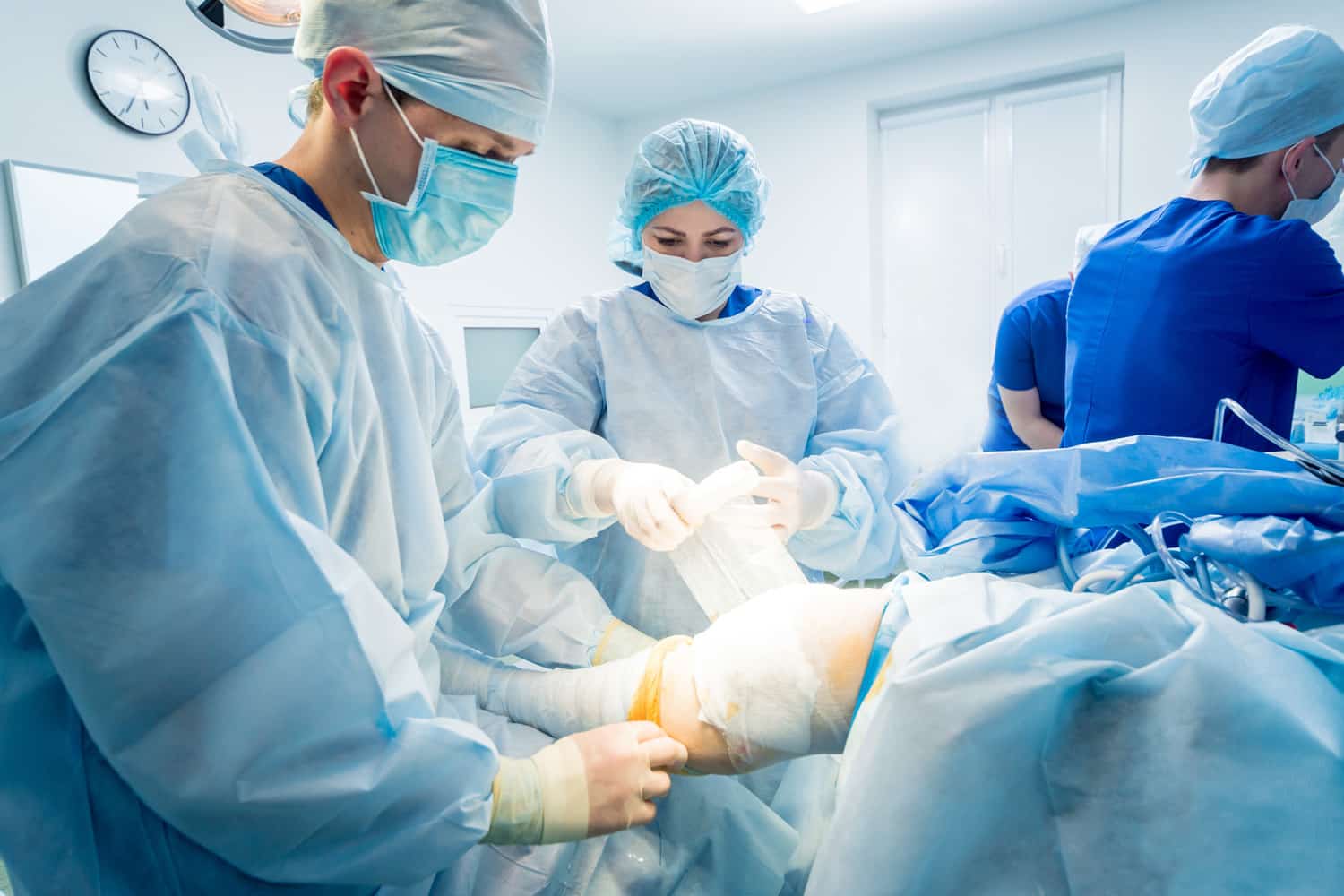
The Knee Care Press
Weekly
Better outcomes after mini-subvastus approach for total knee arthroplasty
Based on meta-analysis of 52 articles and more than 4,500 patients, the mini-subvastus approach for TKA demonstrated superior overall, when compared to the others.
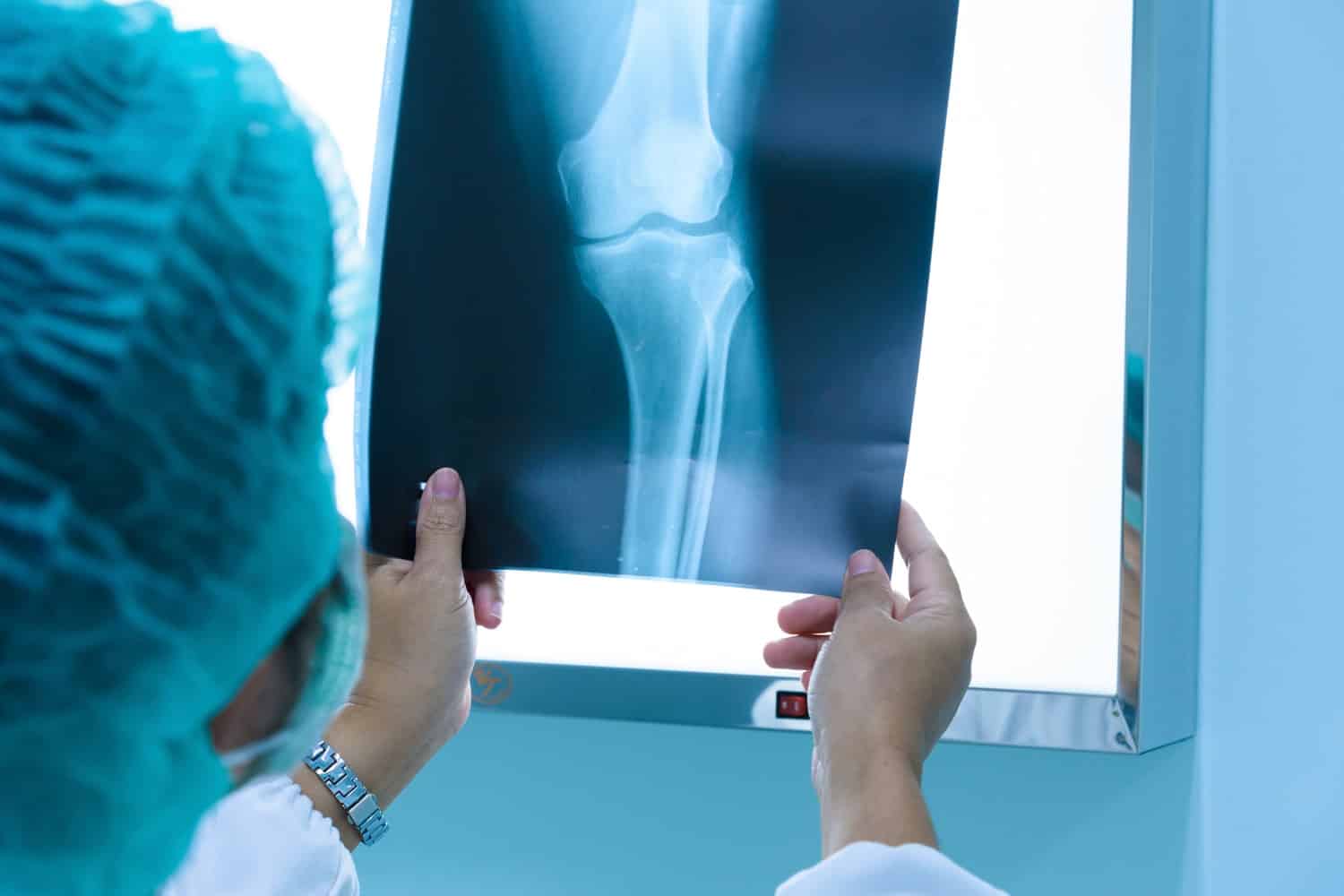
The Knee Care Press
Weekly
Choice between partial and total knee replacement
NICE quality statement announces patients with isolated medial compartmental osteoarthritis will be given the choice of partial or total knee replacement.

The Knee Care Press
Weekly
Elective trauma and orthopaedic waiting list the largest for over a decade
NHS COVID recovery plan highlights important role for digital solutions

The Knee Care Press
Weekly
Is it time to reconsider the cost-effectiveness of cementless TKR?
Cementless TKA delivers similar outcomes to cemented TKA at lower procedural costs1

The Knee Care Press
Weekly
Cementless fixation improves 10-year survivorship in PKA
This observation was amplified in younger patients (< 65 years)

The Knee Care Press
Weekly
Modern medial congruent bearing achieves good outcomes for moderate valgus deformity in primary TKA
A multicentre international study of 77 patients receiving a Medial Congruent (MC) Total Knee Arthroplasty (TKA) between 2016 and 2018

The Knee Care Press
Weekly
Is post-op recovery time important to your patients? Then you should consider PKR!
Two-year clinical trial concludes that recovery after partial knee arthroplasty is significantly faster than total knee arthroplasty.

The Knee Care Press
Weekly
The benefits of foresight
Personalizing knee alignment with 3D planning and patient specific instruments.

The Knee Care Press
Weekly
Revealed: substantial benefits of telemedicine in orthopaedic surgery
A review of the opportunities & challenges for telemedicine in orthopaedics

The Knee Care Press
Weekly
It’s not just about implant survivorship
Cementless fixation may deliver better long-term functional recovery than cemented fixation.

The Knee Care Press
Weekly
Want to get closer to your intended surgical targets in Total Knee Arthroplasty (TKA)?
Robotic-assisted surgery delivers more accurate and reproducible limb alignment than conventional instrumentation.

The Knee Care Press
Weekly
Can robotics lower the technical barriers to cementless TKA?
The benefits of improved accuracy, reproducibility and personalized alignment.

The Knee Care Press
Weekly
To resurface or not to resurface the patella…
Could this recent study of UK National Joint Registry data provide the answer?

The Knee Care Press
Weekly
Good reasons to consider day case knee arthroplasty
Recent study suggests that same day discharge post TKA does not affect early pain or functional outcomes

The Knee Care Press
Weekly
Promising 5-year results for personalized total knee prosthesis
Survival with implant revision for aseptic failure as the end point: 99.57%2
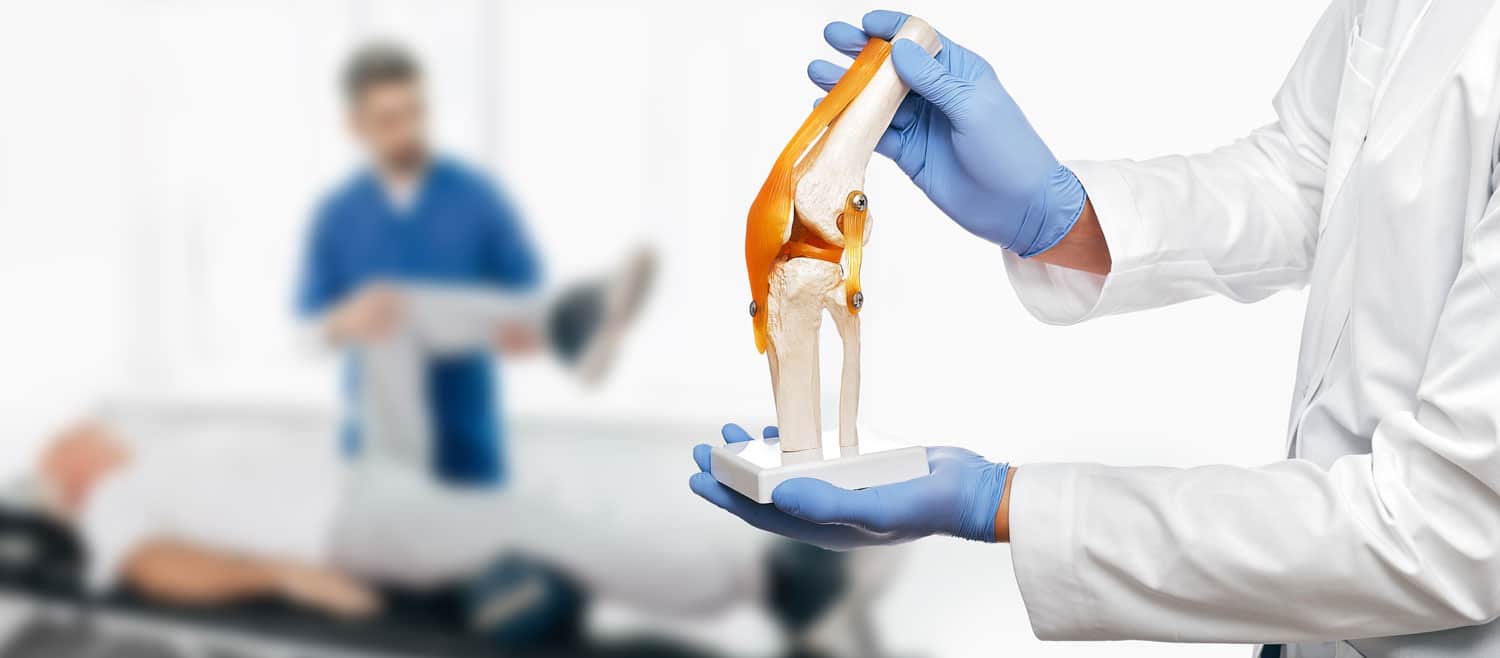
The Knee Care Press
Weekly
This classification provides a simple and comprehensive system for describing knee alignment1
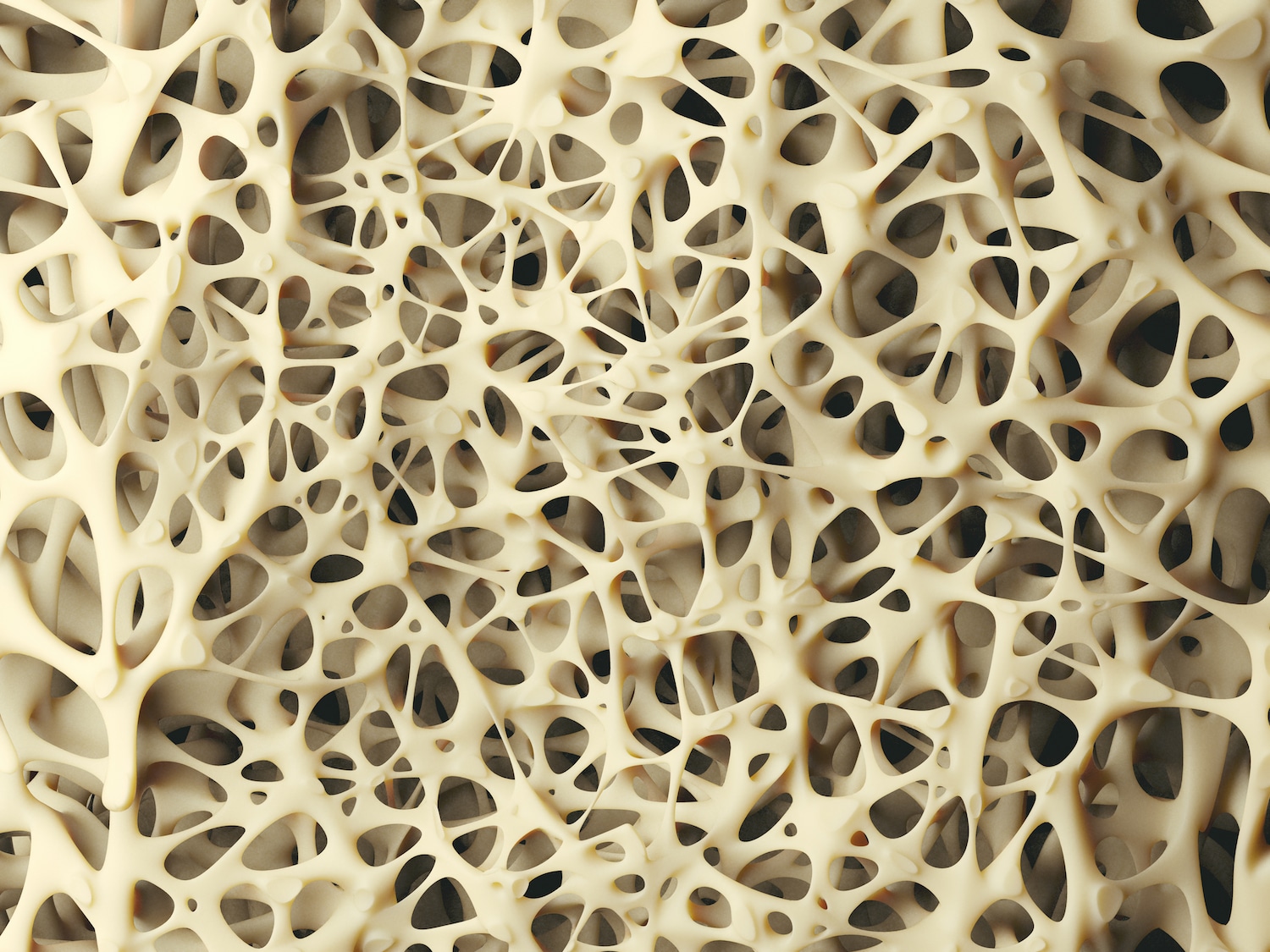
The Knee Care Press
Weekly
Is it time you revisited cementless total knee arthroplasty?
Find out why some surgeons are aiming “for biological fixation in all future arthroplasty surgery.” 1

The Knee Care Press
Weekly
Implant-guided motion may help patients “forget” their TKR
At one year, patients receiving a Medial Congruent (MC) bearing reported significantly higher Forgotten Joints Scores (FJS) than those receiving a Cruciate Retaining (CR) bearing (71.6 Vs 58.7; p = 0.02) 1.

The Knee Care Press
Weekly
How do you treat your young patients with isolated medial compartment osteoarthritis?
New evidence suggests that a fixed-bearing partial knee replacement is an excellent option.

The Knee Care Press
Weekly
Anatomic tibial tray demonstrates promising two-year RSA results
Investigators observe a migration pattern comparable to that of a well-proven symmetrical tibial design. 1

The Knee Care Press
Weekly
A shorter length of stay, and lower rates of periprosthetic joint infection and reoperation
Findings from a propensity score matched study of 10,494 procedures support the use of PKR in a fast-track set-up whenever it is indicated. 1

The Knee Care Press
Weekly
Tele-rehab after knee arthroplasty may offer a viable alternative to traditional consultations
A systematic review finds current evidence “very convincing” 1

The Knee Care Press
Weekly
Do patients with significant varus deformity prefer more constrained implants?
Constrained-Condylar-Knees (CCK) shown to outperform less-constrained alternatives in patients with high grade varus osteoarthritis (OA). 1

The Knee Care Press
Weekly
What is the role of technology in personalized TKR alignment?
“New technologies have increased the ability to restore native knee kinematics with TKR” 1

The Knee Care Press
Weekly
When it comes to Partial Knee Replacement age is just a number
New study advocates for PKR in very elderly patients 1

The Knee Care Press
Weekly
Do you want more evidence for the benefits of robotic-assisted knee arthroplasty?
A recent systematic review of robotic-assisted TKR surgery shows improved implant alignment, less soft-tissue trauma, and better early functional outcomes compared to conventional instrumentation 1

The Knee Care Press
Weekly
Cementless TKR trumps cemented TKR in younger patients1
Cementless TKR was associated with better clinical outcomes than cemented TKR in a meta-analysis of recent randomised controlled trials (RCT) in patients aged ≤ 60 years1

The Knee Care Press
Weekly
It’s time for Telemedicine
Telemedicine is expanding rapidly in orthopaedics and is delivering high satisfaction and cost-effectiveness 1

The Knee Care Press
Weekly
Do you aspire to optimise all aspects of patient care? Then help is at hand!
New playbook to support the implementation of an evidence-based pathway optimisation philosophy1.

The Knee Care Press
Weekly
Do activities of daily living take more effort for TKR patients?
Findings from a recent cadaver study on extensor efficiency of unicompartmental (UKR), bicompartmental (BCR), and total knee arthroplasty (TKR) may help explain the superior function and satisfaction reported by PKR patients1.

The Knee Care Press
Weekly
Is mechanical alignment still the gold standard in TKR?
Promising results for a patient specific and personalized surgical technique.
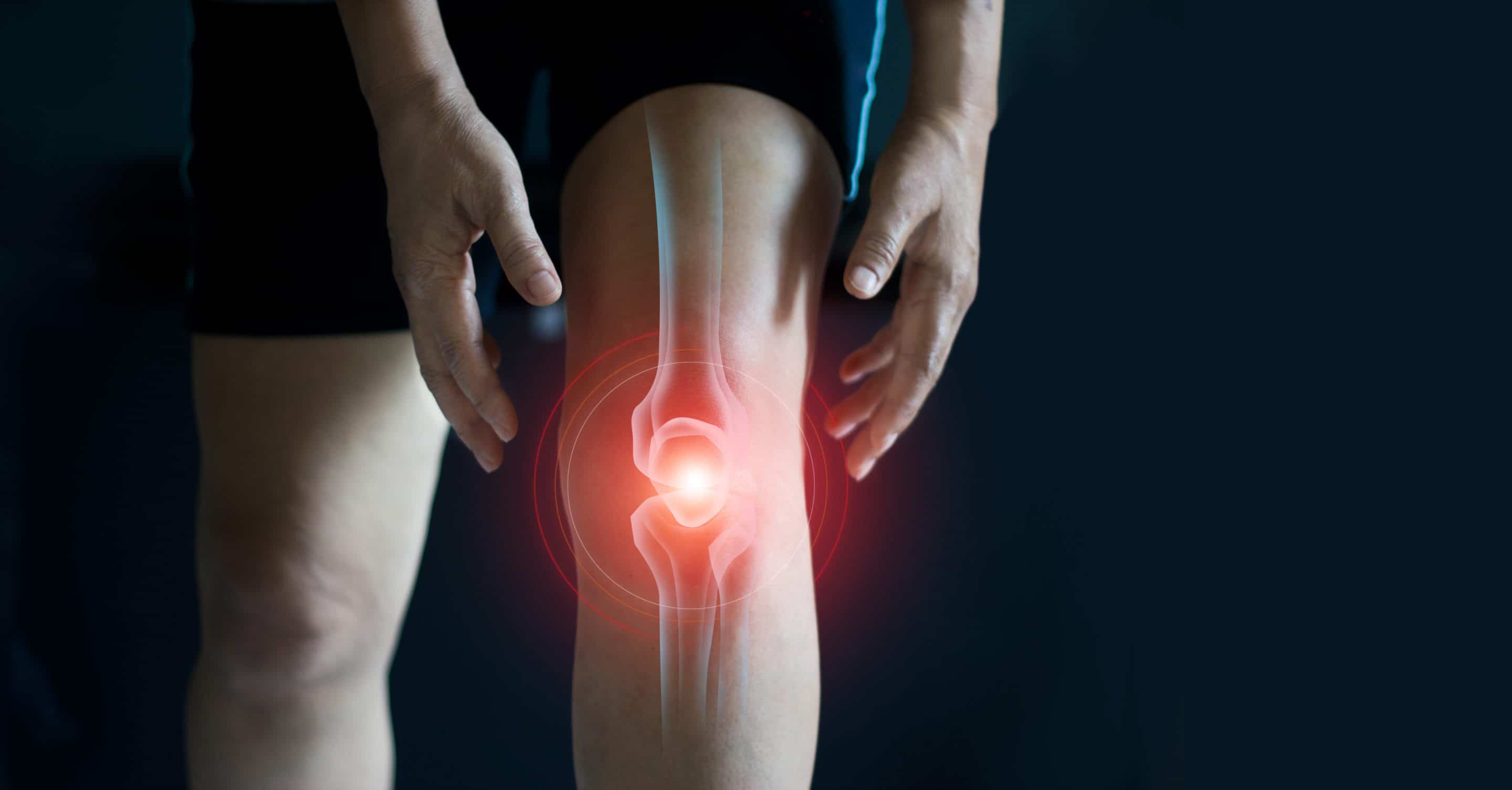
The Knee Care Press
Weekly
Can a more anatomic TKR design reduce post-op patellofemoral pain?
A comparison with the most widely used and clinically proven total knee system in the world.

The Knee Care Press
Weekly
Instability the top reason for revision TKR at a specialised Swiss knee centre1
In a study of 200 revision knees, 116/58% were revised for instability1.

The Knee Care Press
Weekly
The rise of the machines
Surgical robot market to quadruple from 2018 levels to $6.8 billion by 20261.

The Knee Care Press
Weekly
Could PKR save the health service millions?
A News Medical review of the TOPKAT (Total or Partial Knee Arthroplasty Trial), published in the Lancet suggests they could1

The Knee Care Press
Weekly
Are Swiss hospitals adopting digital solutions fast enough?
A recent MEDINSIDE article reports on the findings from a survey of health care workers across 26 Swiss hospitals.1

The Knee Care Press
Weekly
Functional TKR Alignment: Where two philosophies collide?
New study describes a hybrid technique that allows both “mechanically-sound and soft tissue-friendly alignment targets to be identified and achieved.1”
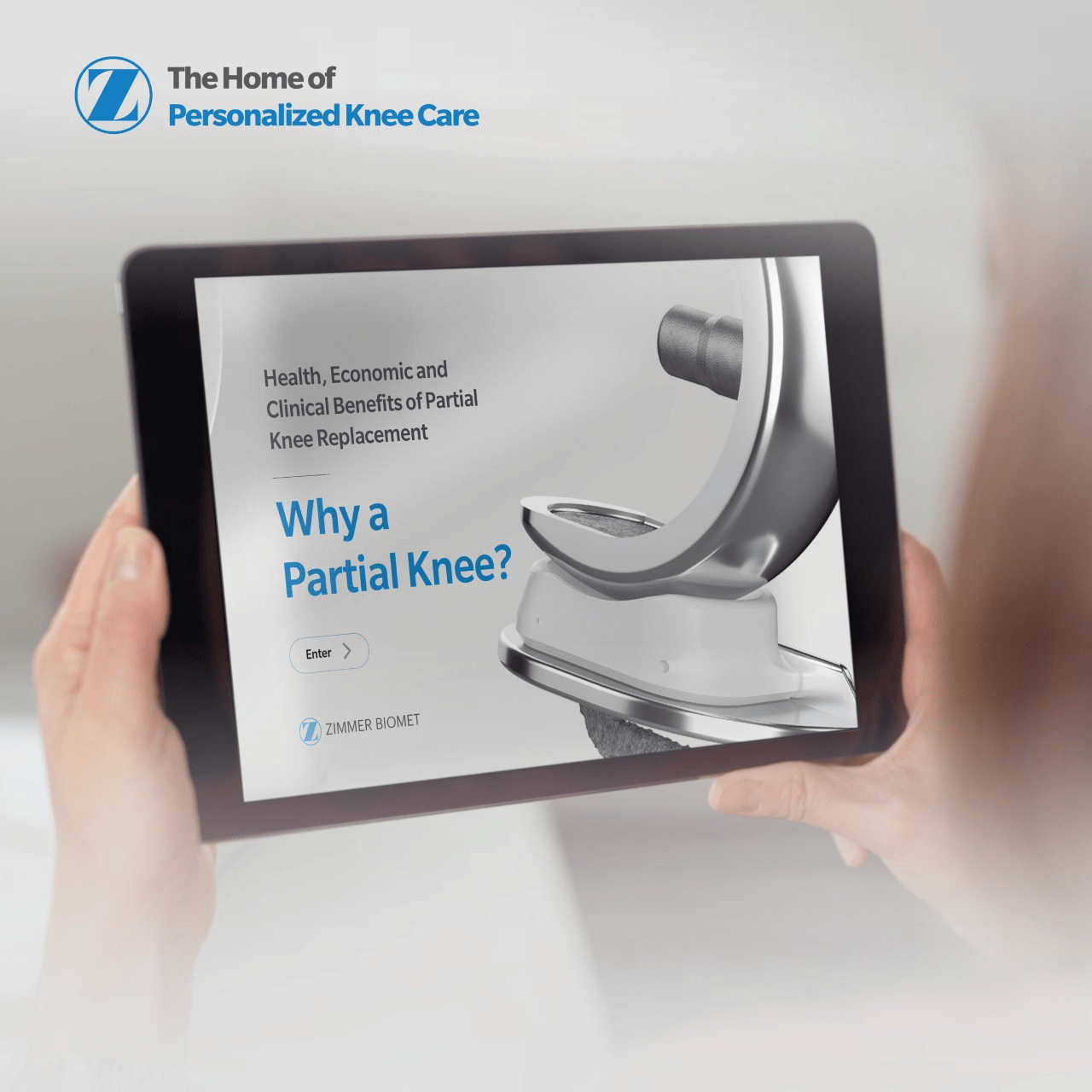
The Knee Care Press
Weekly
Why you should consider PKR
Explore the benefits of PKR vs TKR in our new digital guide

The Knee Care Press
Weekly
We’ve seen the future of orthopaedics, and it’s digital
How the COVID-19 pandemic accelerated the adoption and integration of digital health tools in orthopaedics.

The Knee Care Press
Weekly
Check your knowledge
on PKR indications (pain location)
Based on the available clinical evidence, many of the historic beliefs about PKR contraindications can be called into question. In this series we examine some of the most common misconceptions. This week: pain location.

The Knee Care Press
Weekly
Tackling the arthroplasty backlog
caused by COVID-19
BODS/BOA Survey: To clear the backlog in 12 months, arthroplasty surgeons would have to operate at 133-170% of their ‘normal’ capacity1

The Knee Care Press
Weekly
Want to grow your
day surgery practice?
Find out how with The National Day Surgery Delivery Pack. Do you want to improve patient care and satisfaction…
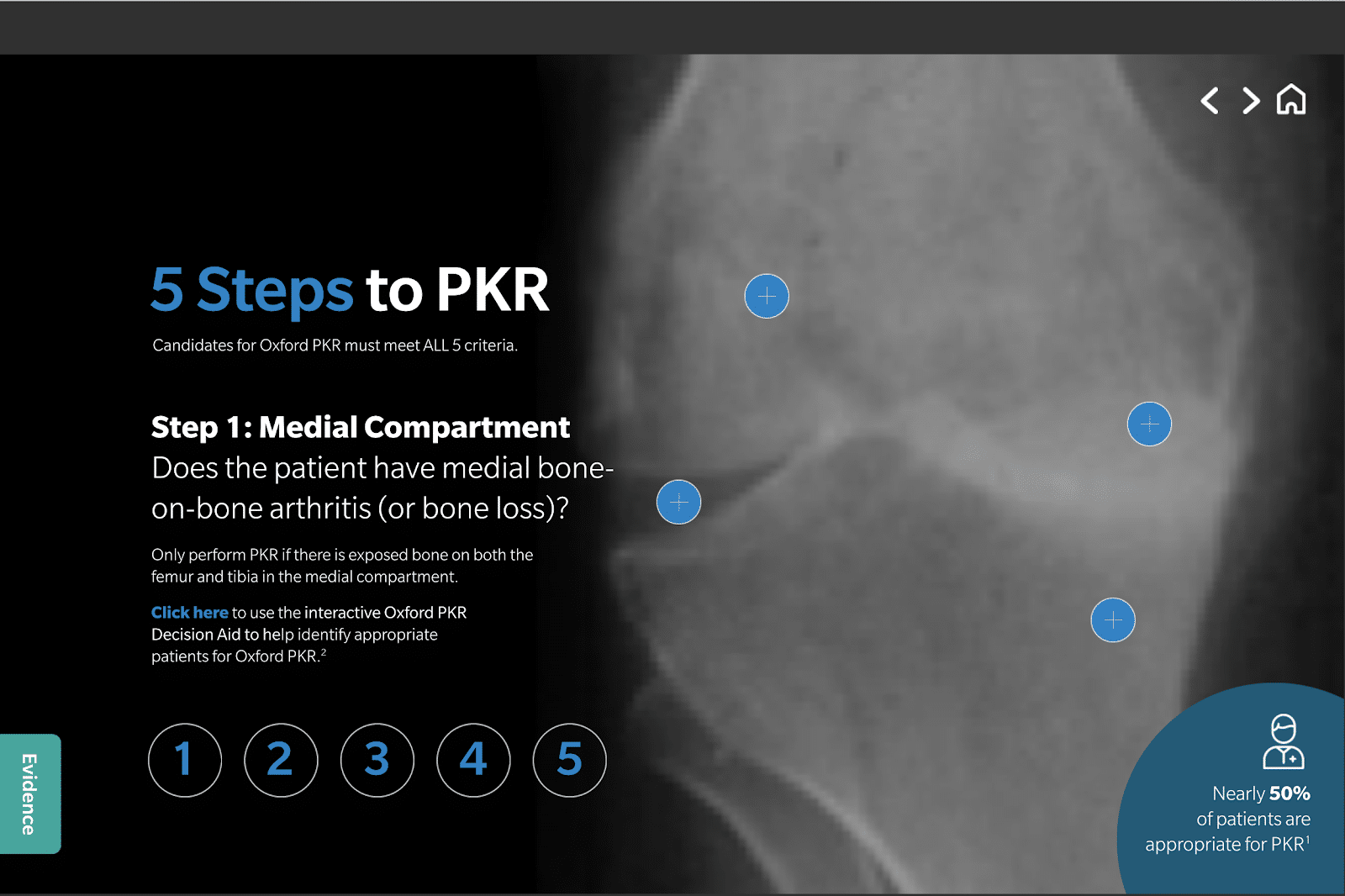
The Knee Care Press
Weekly
Recognise the 5 steps
to identify your PKR patients
According to the literature nearly 50% of patients are suitable for PKR.1 This interactive PDF will help you to identify them.
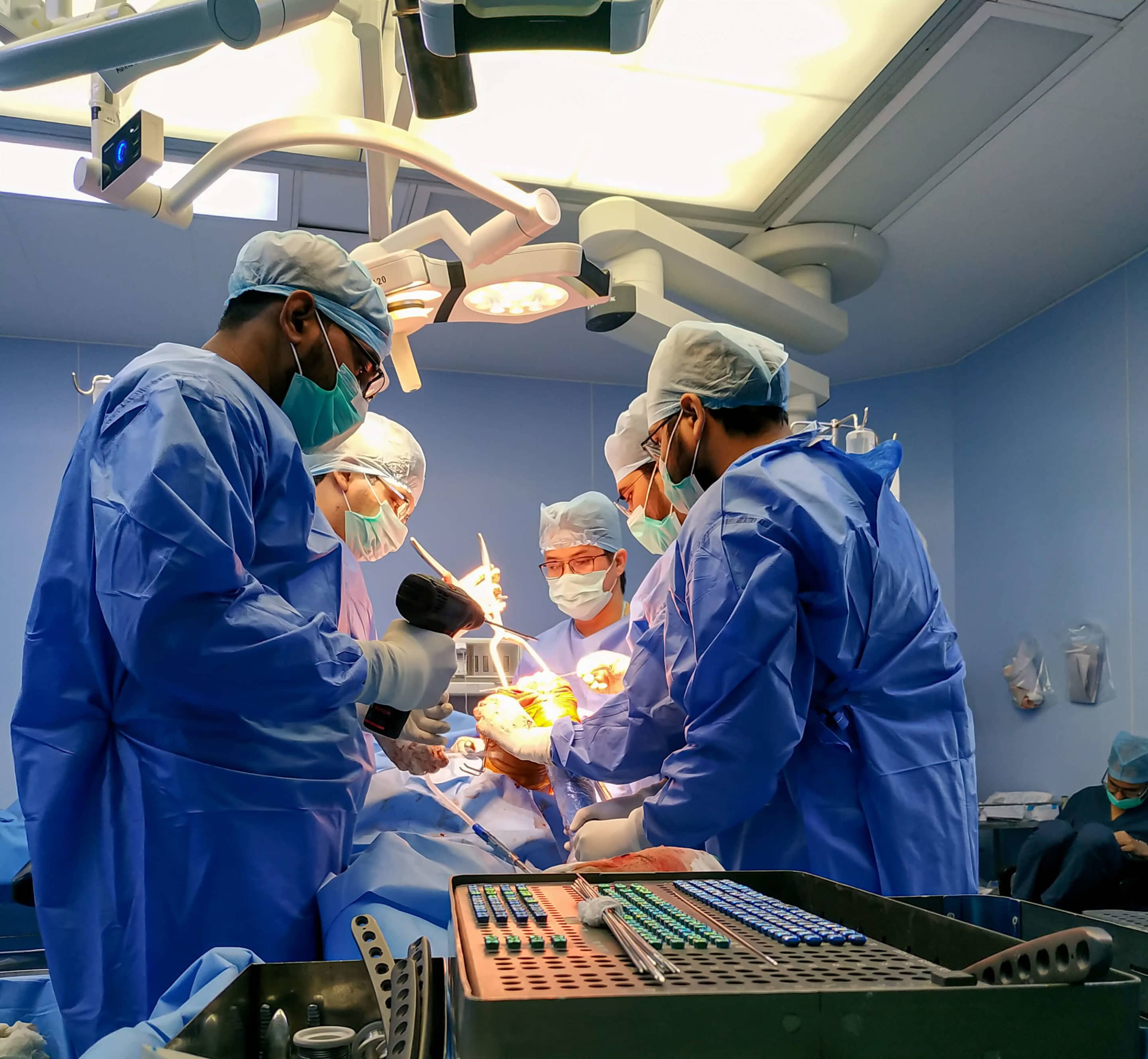
The Knee Care Press
Weekly
NICE recommends
all hospitals to provide PKR
Suitable patients are to be offered an informed choice of PKR or TKR. How many patients with isolated medial compartmental osteoarthritis would favour partial over total knee replacement if all of them were offered the choice?
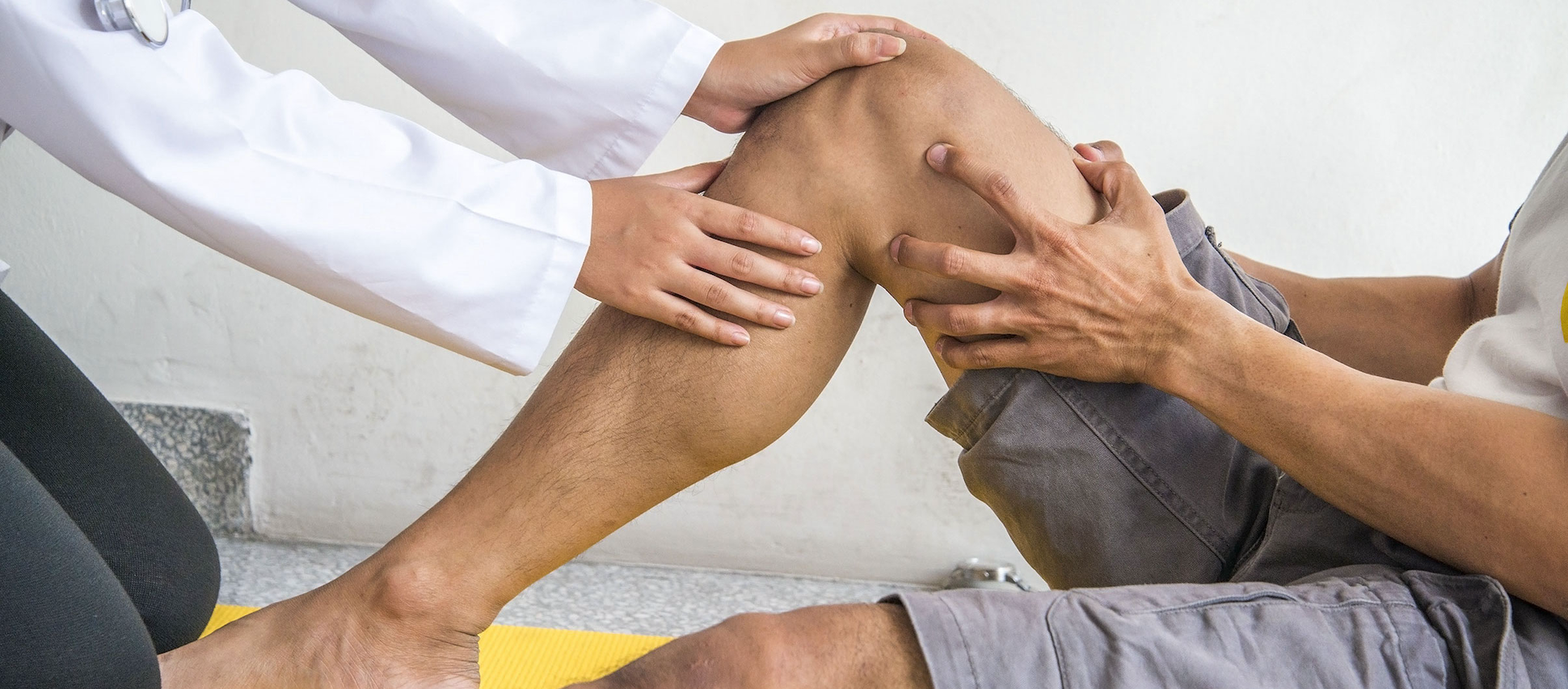
The Knee Care Press
Weekly
Welcome to the Home of Personalized Knee Care
If you are a surgeon, GP, or part of the hospital management team who work in the knee health care sector then you’re in the right place!
Facts & Figures
Getting it right in five
The essential principles of the medial fixed-bearing PKR surgical technique
Facts & Figures
Are more anatomic components the key to more satisfied TKR patients?
Promising early outcomes for a personalized knee system suggest they might be1.
Facts & Figures
Mind the treatment gap
What do you currently offer patients with mild to moderate knee osteoarthritis?
Facts & Figures
Addressing knee instability and activity limitation post TKR
Up to 32% of patients have reported knee instability with activity limitation and pain six months after TKR. 1
Facts & Figures
Up to 58% of patients
choose PKR over TKR
A discrete-choice experiment evaluating TKR & PKR
Facts & Figures
Helping your patients
“forget” their new knee
Partial Knee replacement is Personalized Knee Replacement. Research has shown that PKR patients are more likely to forget their joint replacement than TKR patients.1, 2
Facts & Figures
Should younger TKR patients be treated with cementless components?
Cementless tibial components may offer an advantage in patients with a life expectancy of more than 11 years. 1
Facts & Figures
Personalized TKR alignment improves functional outcomes
This systematic review of alignment options in TKR describes a technique that: “like partial replacement techniques for knees… is a ‘patient specific’ and ‘ligament sparing’ technique to restore… the native pre-arthritic limb and joint alignments and knee laxity…”1
Facts & Figures
It’s time to get
Personalized
The quest for the forgotten knee
Although you can generally expect excellent survivorship from most knee replacements, today’s patients are more demanding, and their definition of ‘success’ has changed.
1 in 4 Patients
not fully satisfied with their knee replacement 1, 2, 3

Clinical Update
Do cost concerns prevent you using more cementless TKR?
This study reveals that cementless components do not increase procedural costs for TKR 1


Clinical Update
It’s all about
optimisation
How a UK hospital reduced length of stay for TKR by 2 days and increased operational capacity by 40%.
Employing an evidenced-based programme to optimize all aspects of a patient’s orthopaedic journey helped a UK hospital reduce the length of stay for TKR from 3.9 days to 1.6 days…

Clinical Update
Anatomic tibia improves pain and functional scores in TKR2
Knee pain continues to be one of the top five reasons for revision knee replacement in the UK.1

Clinical Update
Personalized PKR proves
clinical value
in latest ODEP ratings1
Personalized PKR proves clinical value in latest ODEP ratings1

Clinical Update
Can a smartphone-based care platform rival traditional care models?
Study finds evidence of similar early outcomes to traditional care models in primary knee arthroplasty
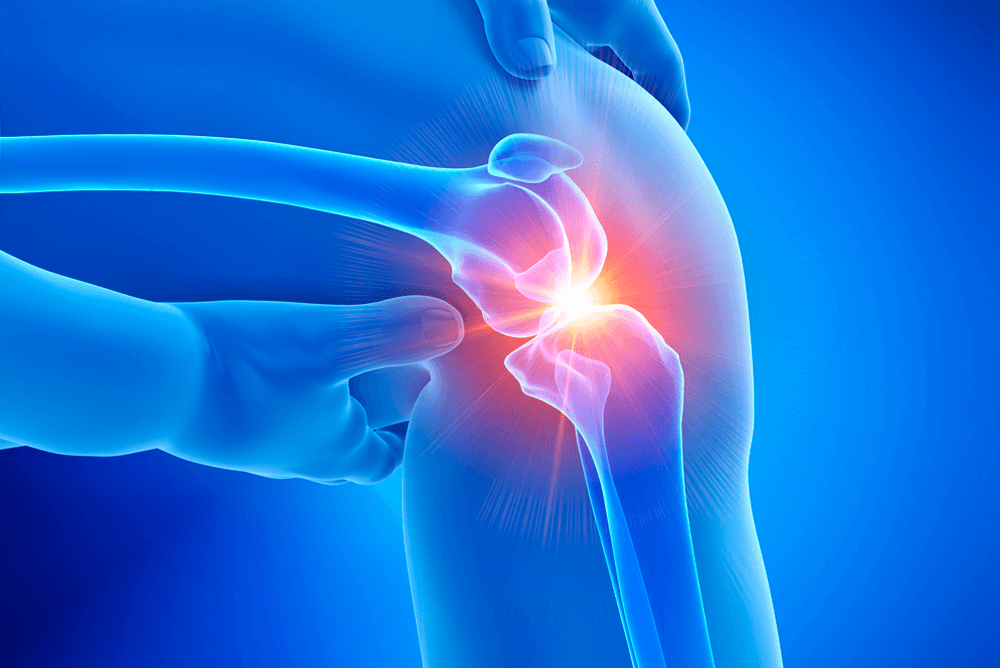
Clinical Update
Are tibial stem extensions preferred
for obese patients?
Personalized implant selection in primary TKR



